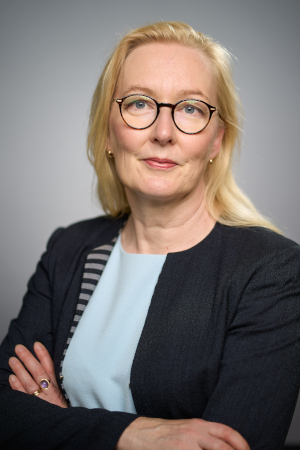NordenBladet — The beginning of 2022 was exceptional for SMEs as the coronavirus pandemic started to worsen again. This situation is reflected in the expectations of near-term economic growth among small and medium-sized companies. The expectations have fallen but remain positive. Additionally, to the majority of the SMEs that responded to the survey the economic conditions have remained unchanged from last autumn’s barometer.The continuation of the pandemic and the restrictions related to health security have weakened the outlook for SMEs. However, the expectations of personnel growth have remained positive and have even slightly improved.“Compared with last autumn, fewer SMEs now foresee an improved economic situation. In recent weeks, however, there has been hope that the pandemic will level off. Companies would benefit from a more predictable operating environment, which would also speed up their growth and investment plans. In the post-pandemic period, we must ensure that companies have a predictable and encouraging operating environment,” says Minister of Economic Affairs Mika Lintilä.The SME Barometer is published twice a year by Suomen Yrittäjät, Finnvera and the Ministry of Economic Affairs and Employment. This time, 5200 companies responded to the survey, which was conducted between mid-December 2021 and mid-January 2022.Economic outlook reflects the prolonged pandemic The prolonged pandemic and restrictions hindering business activities are evident in the results.
“The strong economic outlook in the autumn has weakened because of renewed restrictions and closures even as the vaccination coverage has improved. New virus variants and subsequent closure measures in many sectors cause further uncertainty,” says Chief Economist Mika Kuismanen from Suomen Yrittäjät.Uncertainty weakens investment plans “Expectations of future turnover are closely linked with general economic expectations. They have fallen slightly in tandem with general economic expectations,” Kuismanen says.“SMEs will significantly reduce their investments. In all main sectors, with the exception of industry, there are more companies discontinuing their investment plans than those increasing such plans,” Kuismanen adds.The poor investment expectations are linked to the continuation of the pandemic, economic growth and uncertainty in the operating environment.Availability of funding remained good in generalAs a whole, the availability of funding has remained good. Only 5% of the respondents said their application for external funding had been rejected. The use of external funding has remained unchanged from the level of the last barometer in the autumn.The share of bank financing is on the increase, but changes related to the coronavirus support also play a role in this. Around half of the respondents said that lending conditions have tightened. According to the barometer, this shows most commonly in increased requirements for collateral and equity as well as higher price of financing. Growth-oriented companies in particular mentioned tighter lending conditions in their responses.“The Finnish banking sector is in good shape and, in the big picture, companies are doing well too. As banking regulation is tightening, we must ensure that growth-oriented companies have access to financing. The green transition and the ageing population call for renewal, which, in turn, requires investments,” says Juuso Heinilä, Executive Vice President at Finnvera.Only one in five companies assessed climate impactsThe barometer also examined how prepared companies are to mitigate climate change.
Growth-oriented SMEs recognise the impacts of climate change mitigation measures on their operations more often than other companies.“These companies regard climate change mitigation measures as business opportunities, above all,” Kuismanen says.
So far, only 20% of SMEs have assessed the climate impacts of their business activities. Such assessments are more common among large SMEs than among their smaller peers.
Source: Valtioneuvosto.fi

 Jarmo Sareva. Photo: Lehtikuva
Jarmo Sareva. Photo: Lehtikuva Anu Laamanen. Photo: Markus Bunders
Anu Laamanen. Photo: Markus Bunders Johanna Kotkajärvi. Photo: Kimmo Räisänen
Johanna Kotkajärvi. Photo: Kimmo Räisänen Illkka Räisänen.
Illkka Räisänen.